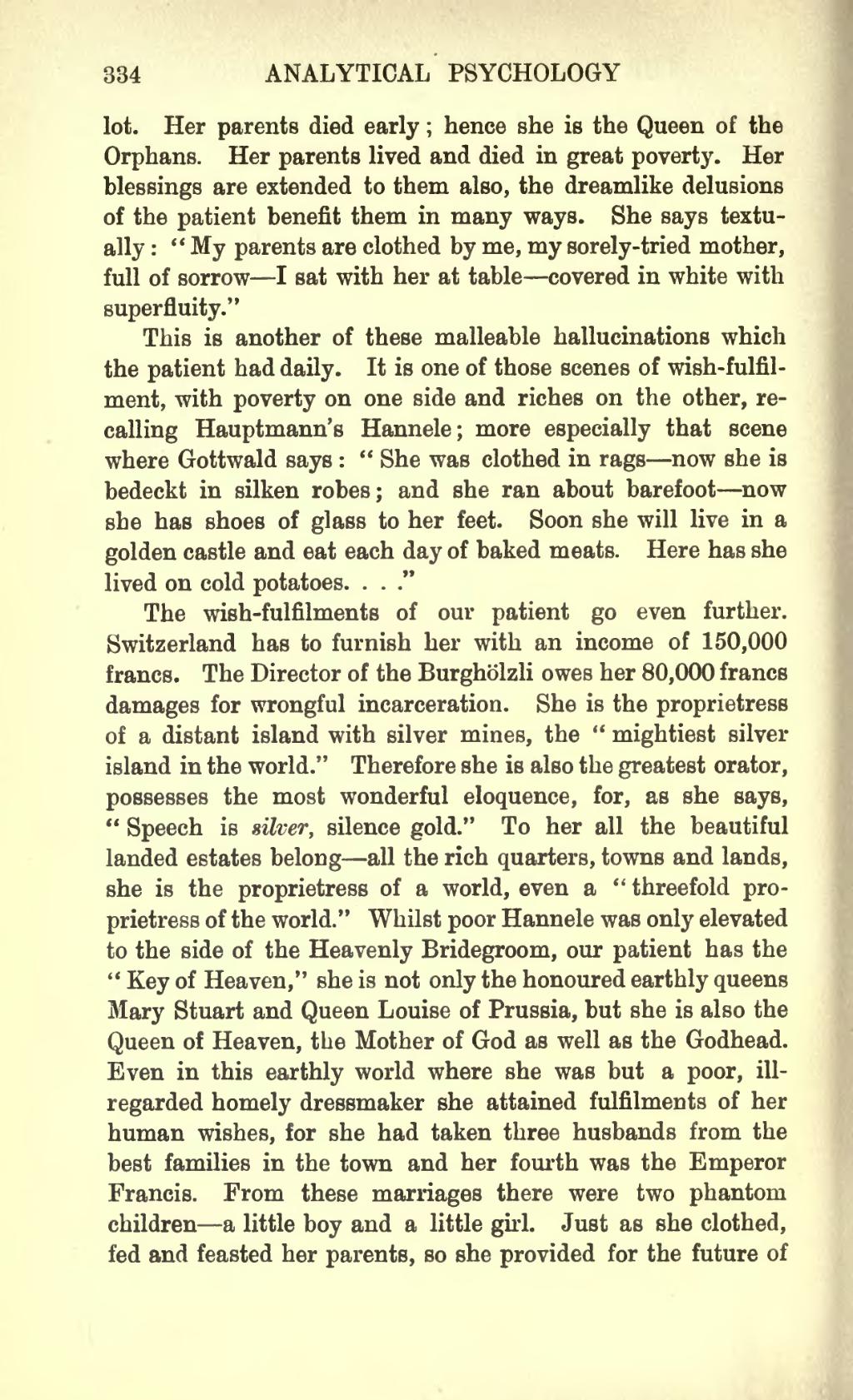lot. Her parents died early; hence she is the Queen of the Orphans. Her parents lived and died in great poverty. Her blessings are extended to them also, the dreamlike delusions of the patient benefit them in many ways. She says textually: “My parents are clothed by me, my sorely-tried mother, full of sorrow—I sat with her at table—covered in white with superfluity.”
This is another of these malleable hallucinations which the patient had daily. It is one of those scenes of wish-fulfilment, with poverty on one side and riches on the other, recalling Hauptmann’s Hannele; more especially that scene where Gottwald says: “She was clothed in rags—now she is bedeckt in silken robes; and she ran about barefoot—now she has shoes of glass to her feet. Soon she will live in a golden castle and eat each day of baked meats. Here has she lived on cold potatoes. . . .”
The wish-fulfilments of our patient go even further. Switzerland has to furnish her with an income of 150,000 francs. The Director of the Burghölzli owes her 80,000 francs damages for wrongful incarceration. She is the proprietress of a distant island with silver mines, the “mightiest silver island in the world.” Therefore she is also the greatest orator, possesses the most wonderful eloquence, for, as she says, “Speech is silver, silence gold.” To her all the beautiful landed estates belong—all the rich quarters, towns and lands, she is the proprietress of a world, even a “threefold proprietress of the world.” Whilst poor Hannele was only elevated to the side of the Heavenly Bridegroom, our patient has the “Key of Heaven,” she is not only the honoured earthly queens Mary Stuart and Queen Louise of Prussia, but she is also the Queen of Heaven, the Mother of God as well as the Godhead. Even in this earthly world where she was but a poor, illregarded homely dressmaker she attained fulfilments of her human wishes, for she had taken three husbands from the best families in the town and her fourth was the Emperor Francis. From these marriages there were two phantom children—a little boy and a little girl. Just as she clothed, fed and feasted her parents, so she provided for the future of
